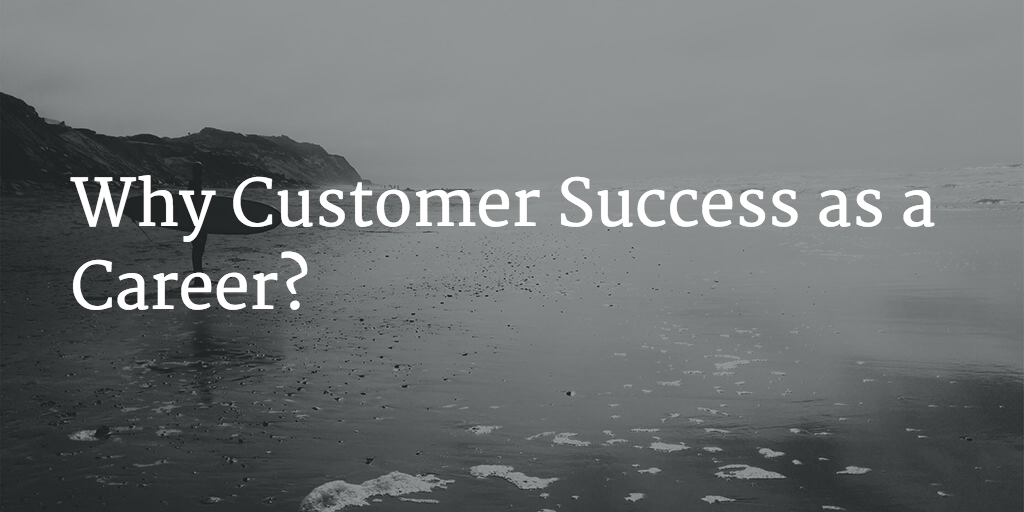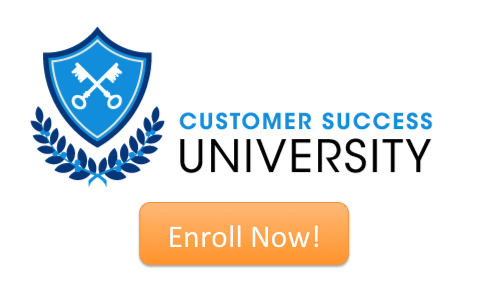Why would you choose Customer Success as a career? Or even as a stopover in your career? Interesting question and one worth exploring. So, let’s explore.
Let’s start by talking about what skills are required to adequately perform this role. After all, no one wants to go in to a job or career that they’re no good at. Here are some of the traits that will serve you well as a Customer Success Manager (CSM), and eventually as a Chief Customer Officer (CCO):
Personable – customers are almost always people
Patient – customers are almost always people
Logical more than emotional – if you scream at your SO when you disagree then don’t become a Customer Success Manager
Influential – many of those you need to impact, including your customers, will not report to you and you will need LOTS of help to be successful
Passion – this is not just a job, it needs to matter in your gut
Collaborative – lone wolves need not apply, teamwork is an absolute necessity
Desire to learn – every day is different, every customer is different, every situation is different; if you don’t want to learn every single day then do not apply
No doubt there are many more critical traits but that should help you assess yourself and whether this is the right path for you. If you think it is, keep reading and we’ll talk about what you’ll be doing.
First we should explore why Customer Success exists. Up until sometime around 2004, it did not exist. Even today it goes by many names – Customer Success, Client Success, Account Management, Customer Advocacy, and many more. It has become popular, even necessary, because of the growth of SaaS (Software as a Subscription) which has put a spotlight on customers due to the need to keep those customers paying their bills – thus the term “subscription”.
At its core, Customer Success, as the name implies, is about driving success for your customers. What that typically means is helping your customers to get maximum value out of your product. Let’s try a quick (and lame) example. Let’s say you are a CSM for Microsoft working only with PowerPoint customers. You would help them to be successful with PPT by knowing the product well and showing them how to use it more effectively.
You would understand which capabilities of PPT are the most useful and valuable (stickiness) and help your customers to learn and use those features. You would understand the features of PPT that are different from the competition and encourage your customers to use those features thus avoiding a situation where your customer decides to stop using your product and start using someone else’s. This is what is meant by the word “churn”.
Now that’s obviously an oversimplification of the job but you get the key idea. Try really hard to keep customers, not lose them. Seems logical and simple, right? Even sounds kind of fun (to some people), right? And that’s true. It is kind of fun. Most days. It’s also very hard some days. And many days it’s both. Keep in mind that, as a CSM, you may very well have 20, 50, or even 150 customers.
And they are never all happy at once. And your boss expects you to have a 98% renewal/retention rate. And, and, and… C’mon, it’s a job. You knew it was going to be hard, didn’t you? Of course it’s going to be hard. But, if you are the right person for the role, you will get great joy and personal satisfaction out of helping your customers to realize that purchasing your product was the best decision in the history of the world.
Let’s go back to the traits I suggested you possess for this role and see how each of them gets applied in real life in the role of a CSM:
Personable – obviously, if you are going to deal with your company’s most precious asset (customers), you need to get along with people. Building relationships is part of this job so you need to be, at least in part, a people person.
Patient – customers will try your patience. One rule that applies across every CSM role is this – never yell at, curse, physically attack, or kill a customer. It never works out well and may even be illegal in some states.
Logical more than emotional – this ties into the previous trait, too. Customers will get emotional because they are under pressure, too, and badly want your product to work easily (magically?) for them. You cannot be the kind of person who meets emotion with emotion. You must meet emotion with logic and patience and allow that to diffuse the emotion. Remember, no killing of customers.
Influential – more than any other job in a company, Customer Success requires influence management. More often than not, you will need help in order to meet some of your customers’ challenges. This requires influencing others to assist you. In addition, to be really effective, you need to influence others to help ensure that fewer and fewer customers are needing your help. If your Sales, OnBoarding, Training, and Support teams can be influenced in the right way, your job when you do inherit those customers, will be much easier.
Passion – there really are jobs out there that you can do without passion. You’ll always be better off if you do have passion but there are roles in which you can survive without it. Customer Success is not one of them. It has to physically bother you when your customers are not happy or you won’t be really good at it. It’s much more than a job. It needs to be personal.
Collaborative – as I mentioned earlier, you will never be an island in this role. You will rely heavily on your teammates and on others in the organization. In turn, you will be relied on as well because teammates will come to you as will Product Managers for product feedback, Sales for reference requests, Marketing for case studies, etc. If you operate better being left alone in front of a computer screen, this is not the job for you.
Desire to learn – perhaps this goes without saying and it’s probably the most universal of these traits (necessary for all jobs). But I guarantee you’ll be working with customers, each of whom uses your product in a slightly different way. In addition, your product will be changing frequently. If it doesn’t, you’ll know you are at the wrong company. Learning will be never-ending in Customer Success and that’s a really good thing for everyone involved.
With the above traits and the skills you will build as a CSM, the career path is exciting. You can obviously move straight up the Customer Success chain into management. But the skills are also highly transferable to other organizations including Sales, Professional Services, and Training. The customer-facing skills you develop will serve you very well no matter what you decide to do.
I believe Customer Success is a tremendous career opportunity and we’re just at the tip of the iceberg for this role. Thousands of additional companies every year will enter into the recurring revenue space and all will need someone to manage customers and ensure high retention rates. If you start today, you’ll have more experience in 5 years than 90% of your peers. It’s an awesome opportunity!
To take your Customer Success Career to the next level, enroll in Customer Success University now.


